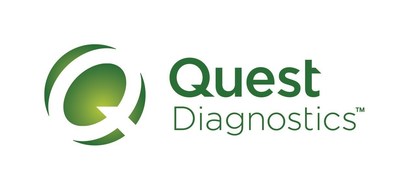BOSTON and MADISON, N.J., June 2, 2016 /PRNewswire/ -- Female college athletes at their highest pre-season fitness levels may be more susceptible to overreach in a team sport environment than less fit ones, according to original research being presented at the American College of Sports Medicine Annual (ACSM) Meeting.

Researchers at Rutgers, The State University of New Jersey, reported that biomarker testing of female collegiate athletes on the Rutgers soccer and field hockey teams showed the athletes with better fitness at baseline testing exhibited heightened inflammation and muscle breakdown as early as the first half of the season. Researchers hypothesized that the athletes may be exhibiting early signs of overreaching due to higher work outputs and less rest and recovery in competitive games than those players who are visibly tiring. If left unaddressed, overreaching can lead to overtraining syndrome, in which an athlete trains beyond the body's ability to recover.
"These findings suggest that a 'Fit Athlete Paradox' may exist: despite visual and other external assessments that suggest otherwise, the most highly trained female athletes may be the ones who are most vulnerable to overreaching during the athletic season," said Shawn Arent, PhD, FACSM, Rutgers University and a member of the Medical and Scientific Board for Blueprint for Athletes, a test service of the Sports and Human Performance franchise of Quest Diagnostics (NYSE: DGX), the world's leading provider of diagnostic information services. "Even within the first four to eight weeks of the season, this is resulting in increased physiological perturbation for the more fit athletes. It's critical that coaches and athletes consistently monitor for signs of fatigue, body stress and indicators of breakdown to mitigate early signs of non-functional overreaching."
The athletes were tested at the onset of training camp and again at the midpoint of the season with Blueprint for Athletes, a customized laboratory testing service of Quest Diagnostics, in order to examine patterns of hormonal and biochemical changes associated with overreaching. Results from the biomarker monitoring showed higher levels of IL6, cortisol, prolactin, and creatine kinase through the first half of the competitive season in fitter athletes, suggesting increased muscle breakdown, inflammation and stress as a body enters a more catabolic state.
The research, "Biomarkers Changes In Collegiate Female Power-Endurance Athletes: The Role of Fitness As a Predictor," is a poster presentation at the ACSM Annual Meeting, held in Boston, Mass., from May 31st to June 4th, 2016. More than 6,000 professionals are expected to attend the meeting to hear about new developments in sports medicine and exercise science.
The Rutgers researchers are presenting additional research that suggests female athletes have specific in-season dietary needs to combat overreaching and maintain optimal health and fitness. The study, titled, "Changes In Markers Of Recovery, Readiness, And Nutritional Status In D1 Female Soccer Players Over The First Half Of The Competitive Season," showed significant and persistent hematological changes in biomarkers such as iron, hematocrit, and omega-3 levels of female Division 1 collegiate soccer athletes during the first half of the competitive season, suggesting that female collegiate athletes may require specific dietary requirements for omega fatty acids and iron to maintain peak performance as the season progresses. The research is believed to be one of the first studies to examine gender-specific recovery, readiness and nutritional status in high level female athletes.
"We know that the dietary and nutritional needs of male and female athletes may be different, yet most current research on blood biomarkers in athletes has been focused on male athletes," said Dr. Arent. "These results, based on longitudinal biomarker monitoring, suggest that unique nutritional insufficiencies may be associated with cumulative strain and impaired strain for female athletes."
The IFNH Center for Health & Human Performance began conducting research using Blueprint for Athletes in 2015. Based on the latest sports science and technology, Blueprint for Athletes evaluates levels of blood-based health markers such as vitamin D, creatine kinase, and glucose that influence protein synthesis, energy levels, and wellness, and provides specific insights athletes can use to help improve their performance. Blueprint for Athletes incorporates the latest science and input from professional and amateur athletes in basketball, football, cycling, running and other sports. The service evolved from a collaboration formed between Quest Diagnostics and the New York Giants in 2013.
Quest Diagnostics contributed to funding for the research presented at the American College of Sports Medicine Annual Meeting.
"This research validates the importance of understanding a body's unique physiological processes not only as a means to enhance performance, but as to facilitate adjustments to training protocols to account for an athlete's overall biological condition, rest and recovery status, and signs of stress and overtraining," said Richard Schwabacher, MPH, executive director, Quest Diagnostics Sports and Human Performance. "We're proud to contribute Quest's scientific expertise to inform research into optimal athlete health and wellness."
Athletes interested in looking to improve their athletic performance and health can visit www.BlueprintforAthletes.com to learn more about Blueprint and place orders online. Blueprint for Athletes is available in select regions, including New Jersey. Become part of the Blueprint for Athletes movement on Facebook and Twitter using #DesignVictory.
About Quest Diagnostics
Quest Diagnostics empowers people to take action to improve health outcomes. Derived from the world's largest database of clinical lab results, our diagnostic insights reveal new avenues to identify and treat disease, inspire healthy behaviors and improve health care management. Quest annually serves one in three adult Americans and half the physicians and hospitals in the United States, and our 44,000 employees understand that, in the right hands and with the right context, our diagnostic insights can inspire actions that transform lives. www.QuestDiagnostics.com.
Quest, Quest Diagnostics, and all associated Quest Diagnostics registered or unregistered trademarks are the property of Quest Diagnostics. All third-party marks are the property of their respective owners.
Contacts:
Wendy Bost, Quest Diagnostics (Media): 973-520-2800
Shawn Bevec, Quest Diagnostics (Investors): 973-520-2900
Logo - http://photos.prnewswire.com/prnh/20150422/200883LOGO
SOURCE Quest Diagnostics